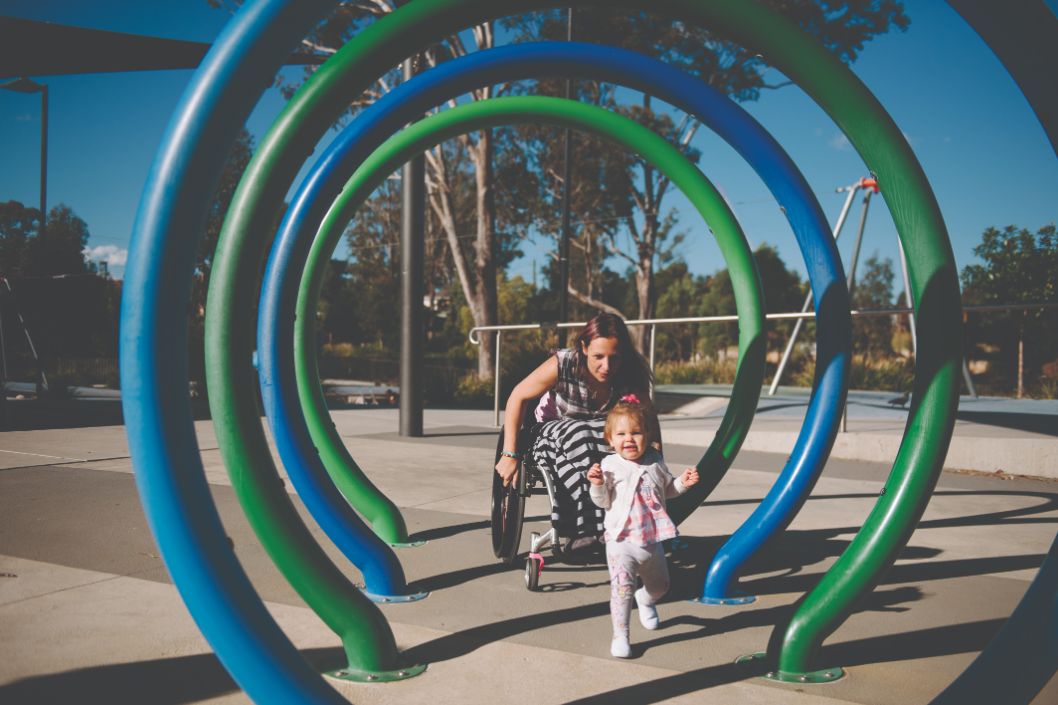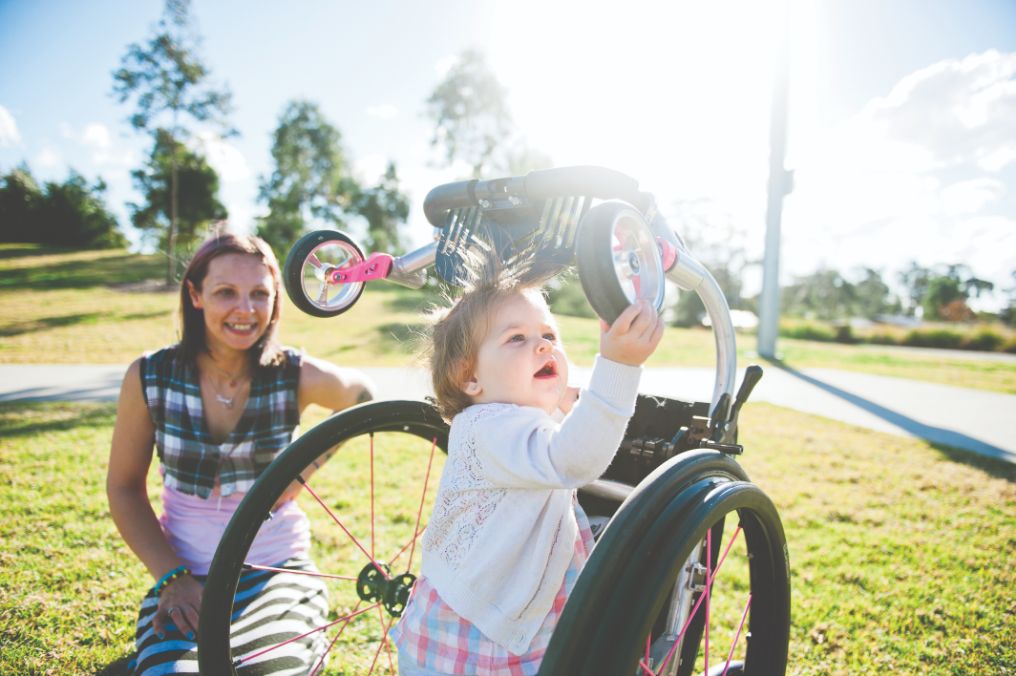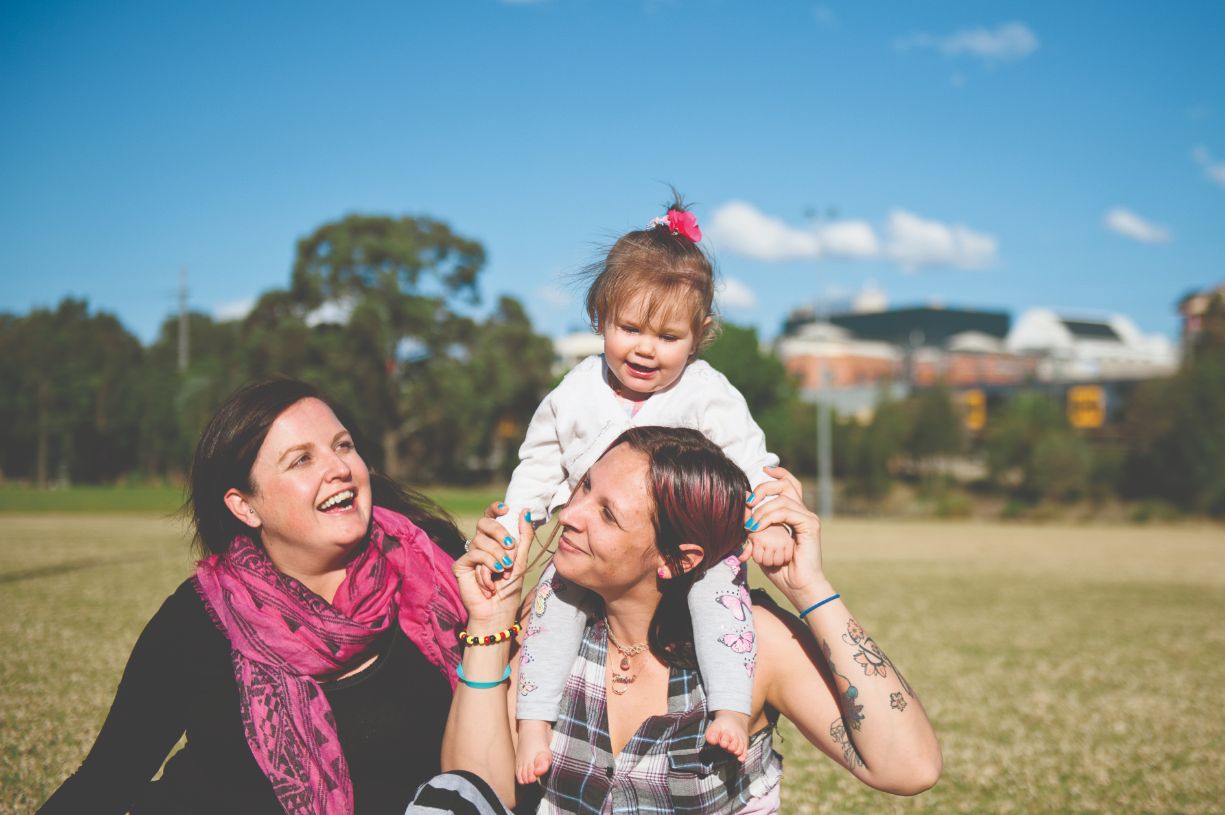Automatic language translation
Our website uses an automatic service to translate our content into different languages. These translations should be used as a guide only. See our Accessibility page for further information.

I love my job. It’s the best use of me. It helps that I have thick skin and I persist. You need that when the door is slammed shut and the phone is slammed down. I don’t take it personally. It’s not about me, it’s about the work I do and the department I work for. There are people who are frightened of us.
To say that Rahni was one of those people is an understatement. She is Aboriginal and we had not done right by her or her family. Her childhood was nowhere near safe; she had barely left it before she had three of her own children, two boys and one girl. She started drinking before the babies were born. It was not hard to understand why. She had so much hurt. Those babies were all tiny when they were taken from her, one after the other. The grief of losing them meant she had added drugs to her ways for taking away pain.
Rahni was 28, single and four months pregnant when we first met. And she was in a wheelchair with a broken spine. Five years earlier she had been in a relationship with an awfully violent bloke. She doesn’t remember how she ended up lying on the ground one night below her third floor apartment. But she does know that by picking her up and carrying her back up the stairs before calling an ambulance, that same bloke took from her any chance she had of walking again.
We met at the hospital. She couldn’t avoid me there! Rahni had been in and out with infections and I had already been to her home several times and knocked on her door. She never opened it. I would stand and knock and then I would dial her mobile number and listen to the phone ringing inside. I knew she was there. I stuck notes under the door and left messages on her phone. Always the same words, ‘My job is to help you keep your baby. Call me.’ And then one day she answered the phone. Before I got my name out she said, ‘I know who you are.
I don’t want your help. You people have never helped me before.’ I asked her where she was and she said she was in hospital. ‘I’ll come and see you there,’ I said. Ignoring the reluctance in her voice, I was in the car quicker than anyone could say, ‘Here’s your chance.’
Surprisingly, the first thing I said to Rahni in person actually seemed to amuse her. ‘I can’t knock on the curtain that’s around your bed,’ I called out. ‘But just tell me when I can I stick my head through it.’ I heard a dry sort of chuckle and then, ‘You can’t knock on a fucking curtain.’ It was nice to finally put a face to a name.
I said I had a social work student with me, a young bloke, and asked if that would be a problem. ‘Make him go away,’ Rahni said. The student waited in the hall. The best thing happened next: a nurse arrived and said Rahni could be discharged. It’s all about seizing the opportunity. ‘I’ll drive you home,’ I said. ‘Only if we get Maccas on the way,’ she said.
When I asked the student to bring the car round the front of the hospital he said, ‘But what about the interview and the home visit?’ ‘This is it!’ I said. ‘Get in the car quick before she changes her mind.’ On the drive I asked Rahni about her other children. Not why they were taken, just stuff about them, their names and ages. Straight up I had to show her that I saw her as a mother. No judgement, just respect. She answered my questions, ate hot chips and we listened to her – the student cramped in the back seat with the wheelchair, and me.
We pulled up at Rahni’s house to find it locked and she didn’t have a key. More opportunities to seize. I tracked down a locksmith who fixed the door and I was quietly pleased that he only left one key. My parting words were, ‘I will be back to get you a spare key cut.’ That was the beginning of a rocky but real relationship.
There was not a single thing I suggested that Rahni agreed to straight away. She always said no and usually hung up on me. One day she explained it. ‘I will tell you to piss off when I’m upset, and I trust no one, but if I like you I will ring you back.’ And that’s how it worked.
Back then Rahni never told me whether she was using and she was not keen on having a drug test. I tried to talk her into hair testing, thinking it would be better for her in the wheelchair without the humiliating complications of filling jars. She refused, but did go to one appointment for a urine test and rang me from there furious. She had not done the test and was upset about how embarrassing it was. Then came the familiar hanging up of the phone. It was my turn to be blunt. I rang her back and said, ‘I’m worried you didn’t do that test because you were frightened it wouldn’t be clean. You think I would hold a drug screen against you. I won’t; it’s my job to help you keep your baby. If you have a positive result it just means we’ll work together to support you to stop using and get healthy – simple as that.’ Rahni hung up.
I didn’t hear from Rahni for days. When I eventually did she just said, ‘Tell me where and when to do the test.’ From that day onwards Rahni did every drug test asked of her and every single one was clean. It takes such willpower to stop long-term habits – and these were ones Rahni had relied on her whole adult life.
She was determined to be as healthy as she could for her baby. I have never seen determination like it. All the credit belongs to her. The one thing I did was make her believe that keeping her baby could happen. That was her motivation to stop using. She made the most courageous choice and was strong enough to see it through.
Rahni changed in front of my eyes – she looked so much healthier. And her openness to me started to change, slowly but surely. She was trying her best to trust me. But the one thing that didn’t change was that she would still put me in my place, and often. I respected that about her; I knew where I stood. It was about a fear of our department that ran deep in her veins. It was going to take more than a few spare keys to shift that. It would take me showing her every day, in every action and word, that I believed the best place for her baby was in her arms. And I did. If I didn’t believe in her how could she believe in me?
With Rahni healthy I felt such relief because I knew that little baby was getting a chance to grow well. The next thing we had to work on was mobility. Rahni had the oldest looking wheelchair and lived in a house that was not what you would call wheelchair friendly. While I was blown away by her fierce independence, I also felt confronted. Rahni had to do things for herself because she had never had any help, and all the reasons in the world not to ask for it.
The day Rahni told me about the things that happened to her when she was a girl was the day I really understood. Hearing stories like that, really listening with heart and mind, is never easy. With Rahni it was inspiring because what I heard most loudly was not the words of trauma but her courage to resist and survive. And what I felt was a first glimmer of trust and a great sense of privilege. It was about the power to do good just by listening, and the permission to do something different, to put something right.
It was one of those days where you know you have the best job.
The trust issue meant Rahni had missed out on disability support. I never did work out where she got that clunky old wheelchair from, but how I wanted it gone! To have a bath she would lower herself onto the floor, which had broken tiles, and then pull herself up into the tub. It wasn’t right that the basic stuff of life had to be so hard for her. It took a few calls to my colleagues in housing, but persistence gets results and we got the changes that Rahni needed made to the home. It helped to work with an occupational therapist because she had great suggestions about how to make it easier to look after a baby in a wheelchair.
We went shopping for timber baby stuff – a cot, change table and highchair. And we found a carpenter and got him to fix them all so they were at Rahni’s height. He put a lot of care into that job – everything was lowered and he built a gate into the cot so that Rahni could wheel over to it and open it. All the time we kept talking about what the baby needed; all the time I was letting Rahni know I believed in her.
Whether she liked it or not, Rahni was going to need help in those early weeks after the baby was born. That’s when I got onto the doulas. They are birth companions and provide support to mothers and babies. I booked them in for round-the-clock support for when the baby was born. The doulas were wonderful; they drove Rahni to appointments in the final weeks of her pregnancy and were a team around her. And I stepped back and watched with growing hope. Women helping women to have babies with love and safety – that is the stuff of life.
We always had someone take Rahni to her ultrasound appointments and she always had one of us by her side to get those early glimpses of her baby girl growing and kicking. We talked about that baby girl all the time. Making it real helps.
I kid myself that I am pretty tough, but there was no stopping the tears when Rahni rang me to say Rossana had been born. I wasn’t surprised when I saw them together – Rahni was a natural, that much was for sure. And Rossana was a healthy, strong, beautiful baby, safe in her mother’s arms. They went home together and the doulas helped for weeks until Rahni could do it on her own.
Rossana is one now. She walks beside Rahni’s shiny, sporty, modern and pink wheelchair. She is full of joy and she is loved through and through. We do not need to work with Rahni at all now. Rossana is safe, and we have other mothers and babies to help. But we do have work left with this family and that’s about getting Rahni’s other kids to have better relationships with her and their little sister. It’s never too late.
I’m having my own baby girl soon. I can’t wait for the day I take her home from hospital, to do my best for her. It’s what all mothers want. I am lucky to have had people who believed in me, right from the beginning. That’s why I can trust my baby will be coming home. I can use that for good, to put that belief in other mothers. That’s why this job is the best use of me.
DCJ people have been in my life since I was 13 years old. I never thought I could like one of them until I met Narelle. She is the first one who ever listened to me. In the beginning I gave her a pretty hard time. I regret that now because she is good at her job. Very good. But I think she understood me and where I was coming from. That’s because she listened and she didn’t tell me what to do. I was so sick of people telling me what to do. I don’t like being told what needs to change without having any say.
It’s because of Narelle that I think differently about DCJ now. It’s because of Narelle that I have my little girl. Narelle came into my life right when I needed her. She believed in us. She helped me believe in me. I will always be grateful for that.


Deputy Secretary Disability Operations NSW Department of Family and Community Services
The American writer Susan Sontag once commented we are all ‘temporarily able bodied’. Most of us will have to deal with the effects of disability, whether it is acquired through birth, accident, illness or age.
Rahni’s story is an indication of what one determined caseworker can do. By not defining her client solely as a person with a disability, Aboriginal, a substance user, abused woman or mother at risk, she made a genuine difference to an individual’s life. Rather than imposing her own hierarchy of preferred outcomes, Narelle put her client at the centre of her practice and dealt with Rahni’s needs and priorities.
The situation is an object lesson in the use of active compassion. To be compassionate is not to be passive. It is the opposite – compassion is not at all weak. It is the ability to witness suffering and act strongly, with skill.
16 May 2023